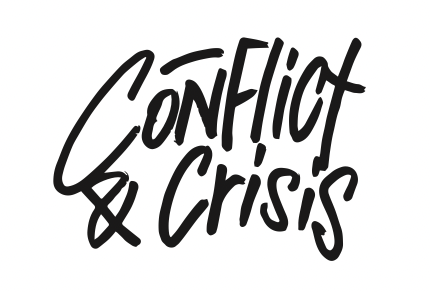
CONTENTS
SUMMARY
CONFLICT & EMOTIONAL MANAGEMENT EDUCATION
CRISIS RESPONSE
RELATIONSHIPS CAN SAVE US
SUMMARY
Crisis and conflict are unavoidable facts of life. Whether facing a personal tragedy, an interpersonal disagreement, a natural disaster, or managing the harms of structural oppression, all humanity shares the common experience of struggle. However, ever-increasing isolation in society due to the expansion of capitalism and its associated individualism, has resulted in crisis and conflict to become ever more relegated to the realm of the “personal.” “Plants and people can defend themselves better when cultivated and supported in groups” (Arizmendiarrieta, 1999, 69). Participating in a cooperative enterprise ideally helps to walk back isolation while providing opportunities to improve skills for collective management of crisis and conflict, as well as strengthening one’s capacity for empathy and ability to care for others. Given the timing of the interviews and research for this toolkit, most of the reflections on crisis and conflict stem from experiences during the Covid-19 pandemic.
Of particular note on the issue of conflict is the reality that it is very common for a conflict with a member to arise in a cooperative, to which the cooperative will logically respond to by pursuing a mediation process or endeavoring to solve the issue interpersonally. Quite frequently; however, these conflicts are purely symptoms of a structural or procedural inefficiency or inequity. While any interpersonal harm that has resulted from the issue needs to be addressed, it is not curative to approach such issues as personal problems when they are systemic or structural in nature. When those interviewed were asked about conflict and crisis, very few mentioned mediation or other classic forms of interpersonal intervention; likely accounting for this phenomenon. As a result, very little on specific methods for mediating interpersonal conflicts is included, though strategies for how to avoid requiring such methods are detailed.
CONFLICT & EMOTIONAL MANAGEMENT EDUCATION
Understanding cooperativism and the Cooperative Identity framework solely in the context of an enterprise is insufficient. Cooperativism applies to how enterprises are structured and operate, as well as the behavior of individuals. Learning how to embody cooperativism as an individual in community with others requires self-reflection, candid sharing of emotions, and the capacity to both safely engage in intimate discussions about values and behaviors, as well as manage any conflicts and emotions that may arise in the process. Some of the reasoning for conflict and emotional management not being taught in public spaces, such as school or work, is that it is commonly believed that these kinds of skills and engagements are unrelated to the objectives of formal education or labor. “People who are absorbed in solving external problems fail to remember that they have internal problems that are no less important. Their wellbeing, perhaps even their material welfare, depends more on the internal solutions than the external” (Arizmendiarrieta, 1999, 17). People are responsible for themselves and all those with whom they are in relationship, so community spaces – especially – can and should be spaces of compassionate education in communicating, processing emotional experiences, and connecting intimately with others. These are the kinds of skills necessary for self actualization and community wellbeing – ultimately far more important than bookkeeping or writing governing documents.
CRISIS RESPONSE
Natural disasters, pandemics, warfare, economic depressions, and other large-scale crises are not everyday occurrences, so many people do not have much practice in how to best respond. The Covid-19 pandemic has impacted the entire world and provided countless lessons for both crisis response. The world watched as countries made decisions about industry and labor that doomed thousands to sickness and death (e.g. the mortality rate of line cooks in the USA rose 60% during the pandemic, while the overall rise in mortality rate was just 22%1 ). The boards of investor-owned firms and the legislators of governments, during crises, often task themselves with making decisions about peoples’ lives about which they have no familiarity or lived expertise. As a result, these decisions are typically overly general, one-size-fits-all solutions that do not reflect the diversity of the people and enterprises of those impacted. A crisis may be global in nature, but its impacts hit individuals, families, towns, and workplaces in different ways – impacts can be complex and disproportionate among people, even those in the same workplace. Cooperatives, however, understand that they are best equipped to make decisions about what is safe and healthy for themselves, for each of them individually and as a collective group; those decisions should then be supported by broader social systems.
RELATIONSHIPS CAN SAVE US
Cooperative work ultimately amounts to organizing people, as even when organizing enterprises and events, what is ultimately being coordinated - through relationships - are our individual resources and capacities. “True wealth lies in the integral development of our personality” (Arizmendiarrieta, 1999, 15). As outlined above, relationships and the skills we need to sustain them are what will ensure the survival, and even the thriving, of humanity. This is true both interpersonally, as well as at an inter-cooperative level promoted by the Sixth Principle, “Cooperation Among Cooperatives.” When Fagor, the first worker cooperative of the Mondragon federation of cooperatives, chose to shut down operations when their products were no longer sufficiently needed in the world, worker-members were given the option of retraining and transitioning into worker-ownership at different cooperatives within the federation. Without those inter-enterprise relationships compelled and supported by cooperative culture and values, Fagor workers could have found themselves without a source of income and, as a result, may have been forced to relocate to find different work outside of the very culturally and linguistically unique, as well as largely rural Basque region in which Fagor was headquartered.
